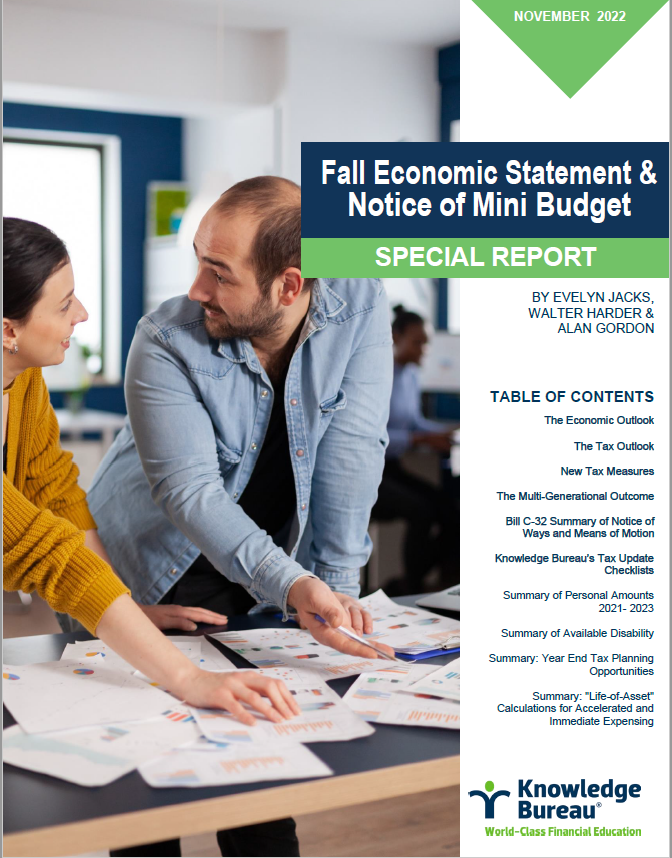Tax and Economic Education Matters – A Great Opportunity for Advisors

In a time of high inflation, and high debt, Canadians are paying attention to the economic messages they are receiving from government. According to a recent poll by Ipsos, Canadians are in fact having mixed feelings on the most recent November 3, 2022 Fall Economic Report and Mini-budget, which was followed the next day with Explanatory Notes to a 169-page Ways and Means Motion that amends the Income Tax Act for new measures.
Please enquire about a comprehensive synopsis from Knowledge Bureau by contacting us at registrar@knowledgbureau.com. Here is what Canadians said:
Canadians seem satisfied with: support for summer jobs, interest-free loans for students, an enhancement of Canada Workers Benefit, and quicker approval of n atural resource and energy projects.
atural resource and energy projects.
However, Canadians are less pleased with: no new investments in healthcare, no reduction in other program spending to reduce deficit, no windfall tax on corporations, no reduction or pause of the carbon tax, GST or the gas tax.
Four other statistics that stood out in the survey:
- Three in ten (30%) see the fact that no savings or other efficiencies were identified in current government programs to help lower the amount of money being added to the debt as a positive (6% very/24% somewhat), while most (70%) see it as a negative (25% very/45% somewhat).
- Only three in ten (31%) see no new money directed towards paying down the Government of Canada’s current debt as being positive (6% very/26% somewhat), while a majority (69%) believes the absence of such a policy is a negative (25% very/44% somewhat) for Canada.
- Seven in ten (69%) believe that an investment of $4 billion over six years to issue advance payments of the Canada Workers Benefit to those who qualify is a positive (13% very/56% somewhat), while 31% see it as a negative (7% very/24% somewhat).
- Two in three (67%) maintain that the introduction of a refundable tax credit for businesses equal to 30 per cent of capital costs to encourage investments in non-carbon emitting energy, heating and energy storage projects, and zero-emission vehicles is a positive (13% very/54% somewhat) thing for Canada, while one in three (33%) believe it is negative (11% very/23% somewhat).
Bottom Line: Economic Education is a priority to Canadians and an excellent opportunity for tax and financial advisors to provide explanations and interpretations of the news to help their clients save money on their taxes, and reinvest it with tax efficiency.
Be sure to request a copy of the Knowledge Bureau Special Report on the November 3 Fall Economic Report; also enrol now to the upcoming Advanced T1 Tax Update in two formats in 2023: The Virtual CE Summits, January 18, 2023 and February 7 Live and in Person in Toronto at the Pearson Convention Center and also, enrol now for the May 24, 2023 (Theme: Retirement and Estate Planning Update), when the next Federal and provincial budgets will be discussed in detail against the backdrop of retirement and estate planning advice.
©Knowledge Bureau, Inc. All rights Reserved